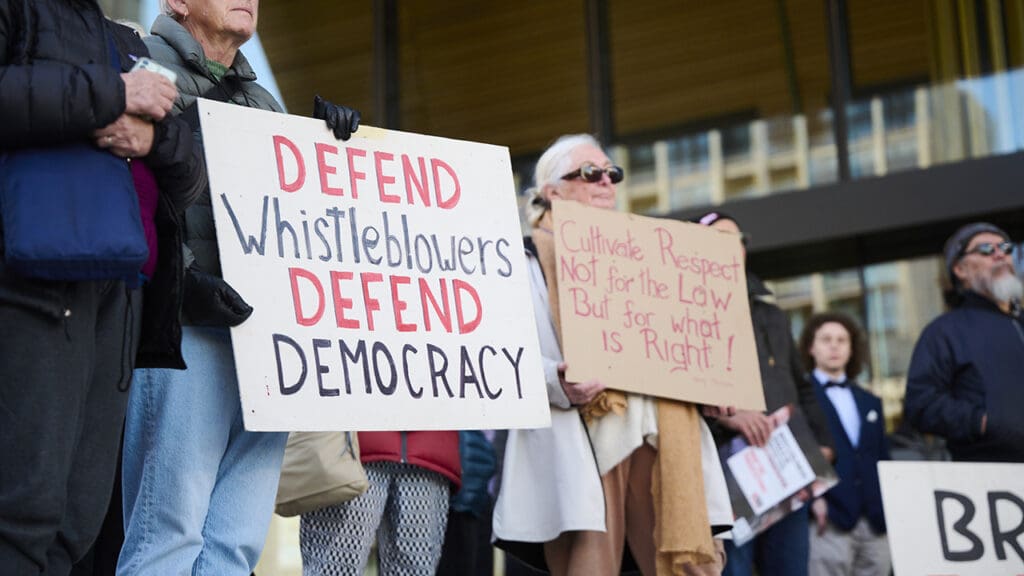Protest in Peril
Our right to protest is fundamental to our democracy. Protest has been crucial to achieving many historic human rights achievements, from Aboriginal and Torres Strait Islander people’s right to vote, to the eight-hour workday and marriage equality.
But our right to protest is under threat. That’s why we have launched our new report Protest in Peril with Senator David Pocock, the Australian Democracy Network, and Amnesty International Australia.
41 years ago — almost to the day — communities won the campaign to save the Franklin River from being destroyed by the Tasmanian Government, through peaceful protest. Climate and Country defenders advocating for the Franklin today could be jailed for up to a year and be fined almost $10,000.
Protesters are always right in history books, but never in today’s headlines.
We must protect our right to protest so that all of us can continue to challenge and hold governments and corporations to account- as is our right. The report provides new evidence of how governments across Australia have introduced laws to limit our right to protest over the last 20 years.
Protest in Peril also outlines how governments can change course. They can repeal anti-protest laws and introduce state and federal human rights acts to ensure our fundamental rights are protected in law.
This would provide clear rules for governments on how to balance and protect basic rights for everyone in the community.
Human Rights Law Centre will continue advocating for reforms to protect our right to come together and speak out about what matters to us.

What issue unites Coalition, Labor, Green, teal and One Nation voters? Whistleblower protections
The Albanese Government’s persecution of whistleblowers Richard Boyle and David McBride is unjust, and the public doesn’t support it. It’s time for much-needed reform.
Read more
We’re fighting Tasmania’s parole board gag on free speech
We have filed legal proceedings on behalf of Tasmanian grandmother, Susan Neill-Fraser. Her case challenges a restrictive parole condition placed on her by the Parole Board of Tasmania which limits her ability to speak to the media.
Read more
Universities must stop restricting protests and surveilling staff and students
The Human Rights Law Centre is urging the University of Melbourne to abandon new policy changes that severely restrict protest rights and allow widespread surveillance of students and staff through the universities’ wifi network.
Read more


